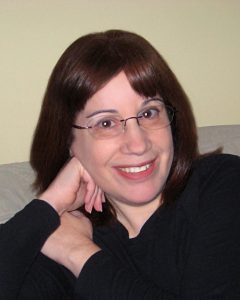Midwest Writers has an amazing faculty slated for our 40th workshop!
 Q. I’ve enjoyed seeing you when our paths have crossed at the Indiana Historical Society Holiday Author Fair in December and last week at the Indiana Travel Media Marketplace. You seem to have your thumb on the pulse of publishing as well as the arts in Indy. Can you give us a thumbnail sketch of how your current work came about? Also, are you as extroverted as you appear at these events?
Q. I’ve enjoyed seeing you when our paths have crossed at the Indiana Historical Society Holiday Author Fair in December and last week at the Indiana Travel Media Marketplace. You seem to have your thumb on the pulse of publishing as well as the arts in Indy. Can you give us a thumbnail sketch of how your current work came about? Also, are you as extroverted as you appear at these events?
Second answer first. I’m not really extroverted at all. I’m a terrible guest at parties if there isn’t a board game involved. But the combination of growing up working on the Wildwood, NJ, boardwalk and spending almost a decade working in comedy clubs taught me that you have to offer engagement if you want to engage. And I’m genuinely honored if someone wants to talk about the things I’ve written.
As to the first question, my current work is a wide range of things–my arts writing for IBJ (Indiana Business Journal), my theater writing, my book work. All of it, I suppose, came about because of a desire not to settle for doing okay, That means being a brutal editor of my own work but not to let that editor squelch me while I’m in the initial, freewriting phase (every book or play or article is the tip of the writing iceberg–there’s a LOT of material that I cut. Always.) And it means to constantly try to be a better communicator. Because that’s really the business we are in. It’s about figuring out how to pass on a story or pass on information or pass on a feeling in a way that makes it welcomed and understood by the receiver.
Q. It seems you’ve done it all, from working for an Indianapolis men’s magazine, to your current work as Arts and Entertainment Editor for the Indianapolis Business Journal, to my family’s favorite book of yours, The Biggest Trivia Book Ever. And the list goes on. What achievements are you particularly proud of, and/or do you have a project that is especially near and dear to your heart?
Pride is a tricky thing. It’s easy to be proud of the effect rather than the work. I’m proud, for instance, that I was able to negotiate a deal on a small book project years ago that still brings a royalty check every six months. And it’s fun to tell people that my novel was optioned by Warner Bros. But for the work itself, I’m proud of a short story I just rediscovered that I wrote in college. I’m proud of a one-act play called “Predictable” that does everything I want it to do even though I didn’t know while writing it what I wanted it to do. And there’s a poem or two where I feel I brought a clarity that I can’t really source. I don’t know where they came from. That’s usually the work I’m oddly proudest of, the stuff that comes from an unplanned place.
Q. Your intensive at MWW13 this summer, Writing Everything: A Freelancer Book of Tricks, encourages attendees to “be interested in just about everything.” This is a bit of a contrarian approach from those saying to specialize. What is one reason, or three, that writers need to generalize to succeed?
Well, one reason is because it usually makes you a more interesting human being. The person who knows exactly who he or she is is usually the person not open to other ideas and visions. They aren’t having a relationship with you. They’re lecturing. The best writers, I think, are curious. They research because they want to learn. They write because they want to figure out how to arrange what they’ve learned and discover what questions remain. Another reason for being open to lots of subjects is survival. A significant percentage of my freelance career–especially early on–has been on assignments whose subjects I had little knowledge of before taking the gig. That doesn’t mean don’t specialize. But it does mean don’t build walls too high around your specialty. The first column I wrote–which evolved into my first book–was on U.S. History, a subject I knew little about when I made a case for myself to be the column’s writer.
Q. Please share something about yourself that might help people to know you better, to feel more at ease upon meeting you for the first time this summer. Be sure to include that most important question: PC or MAC?
I’m just a blue-collar kid from the Jersey shore who picked his college based on the fact that, at Temple U., foreign language wasn’t a requirement. (I just couldn’t make my mind work that way.) I’m writing the stuff now that I feel I should have been writing 15 years ago. I feel lost at the beginning of just about every writing project.
PC.
Q. Do you have tips on getting the most out of a conference?
Don’t come in looking for approval or validation or flattery. Come in wanting to leave a stronger, more motivated writer. Don’t be afraid to take a step back in order to make a leap forward.
Q. What would you say to those on the fence about coming to MWW13?
It can’t be very comfortable sitting on a fence. And, besides, people are starting to talk.
Q. Please share whatever else might be on your mind.
Writing is a relationship you instigate.



